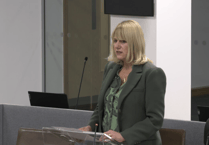Aberystwyth’s Cliff Railway is to close on Tuesday as visitor attractions across Wales protest against a planned tourism tax.
The popular funicular railway on Constitution Hill will close for one day on 10 December, along with more than 100 other leading visitor attractions, in response to the Welsh Government’s proposed tourism tax.
Visitors to Wales will have to pay up to an extra £1.25 a night under plans by the Welsh Government to help fund local services.
The Welsh Association of Visitor Attractions (WAVA) says that the Welsh Government’s own findings show that more than 700 tourism jobs could be lost as a result of the tax, with a revenue loss of £40 million.
WAVA held an emergency meeting where members decided to close their doors for one day in protest at the plans.
Alun Davies from the Cliff Railway, said: “It feels like tourism is being treated like a second class industry.”
One WAVA member said: “Few people in Wales realise that this tax will also apply to them. Hence, if Welsh people take their holiday in Wales they are taxed, but if they go to England for their holiday they won’t be taxed. Only one thing is certain about this proposed tax and that is like all taxes they go up.”
Another said: “I just don’t know where I am going to find £25,000 to cover the increase in my wages bill and N.I increases”.
Many members also commented that last year there was a 23% drop in the number of visitors staying overnight in Wales, and 60% of Welsh attractions saw less visitors than in 2023.
Also, no WAVA attraction is achieving the visitor numbers they once had pre-Covid, adding: “Welsh tourism is the slowest to recover from Covid compared to other UK tourism regions.”
WAVA members also wished to show solidarity and support for the Welsh self-catering sector by this strike action. Self-catering operators in Wales are being ravaged by the W.G.182-day rule resulting in many closures, job losses and reported high stress levels from owners.
Tourism is Wales second largest industry, but members felt the future looked increasingly grim owing to the Welsh Government’s negative attitude towards tourism, and ‘subliminal anti-English rhetoric’.
Members felt they had to take the strongest possible action to show their anger with the Welsh Government, hence their call for strike action. Members voted for more direct action to follow.





Comments
This article has no comments yet. Be the first to leave a comment.